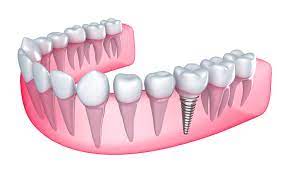In dentistry, dental implants have become a popular solution for those seeking a long-lasting remedy for missing teeth. However, understanding the factors that influence the cost of dental implants can be crucial for anyone considering this treatment.
In this blog we’ll delve into the key aspects that determine the financial investment in a new smile.
-
Location Matters: The geographic location of the dental clinic plays a significant role in the cost of dental implants. Urban areas with a higher cost of living may have pricier implant procedures compared to their rural counterparts. It’s advisable to explore nearby options for potential cost savings.
-
Professional Expertise: The experience and expertise of the dental professional handling the implant procedure impact the overall cost. A highly skilled and experienced implant specialist may charge more, but their proficiency often contributes to a successful and problem-free outcome.
-
Material Quality: The type of materials used in the dental implant procedure can influence the cost. High-quality materials, known for durability and compatibility with the body, tend to be more expensive.
-
Additional Procedures: Additional treatments are sometimes necessary before the implant procedure, such as tooth extractions or bone grafts. These additional steps can contribute to the overall cost, so factoring them into the budget is essential.
-
Implant Type: The choice of implant type also affects the cost. Different implant materials and designs cater to various patient needs. Understanding the options and discussing them with the dentist helps choose an implant that aligns with budget and oral health requirements.
Conclusion
While dental implants can be a substantial investment, considering these factors allows individuals to make informed decisions about the dental implant cost without any surprises in the final bill.












